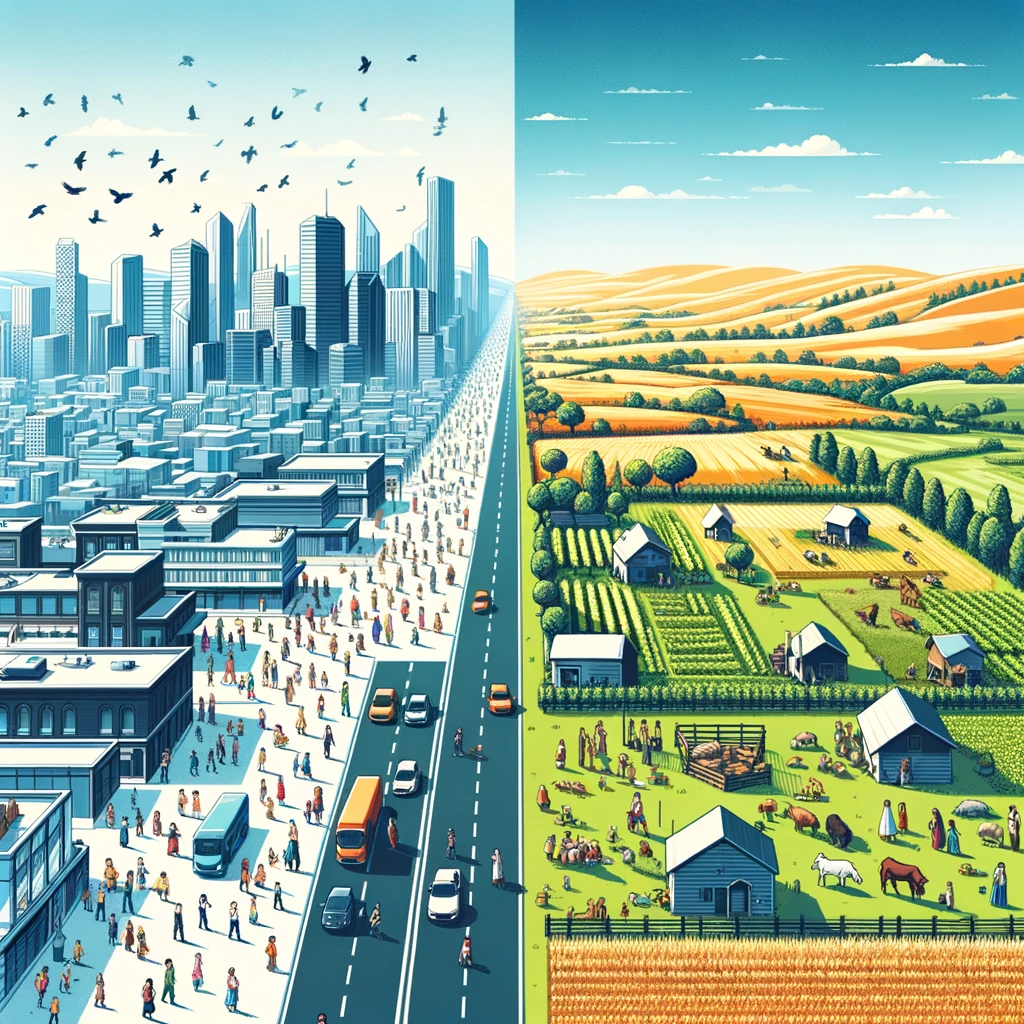Cambridge University: GOP Dominance In Rural U.S. Fueled By Racism, Economics, and Limited Education

Introduction:
In a groundbreaking study released by Cambridge University Press in Perspectives on Politics, researchers explore the root causes of the rural-urban political divide in the United States. The study delves into the intricate mix of economic hardship, anti-Black racism, and differences in educational opportunities that have collectively driven and perpetuated the shift of rural communities toward the Republican Party.
How It Happened: Catalysts of the Rural Shift to the GOP:
Economic Hardship in Rural Areas:
- The 1990s and early 2000s marked a period of significant economic difficulty for rural America, characterized by widespread job losses and economic stagnation, especially in regions experiencing population decline.
- The downturn was driven by the decline of key industries, leading to financial strain and a sense of political abandonment. These economic pressures fueled a search for political alternatives, culminating in many rural communities increasingly supporting the Republican Party.
Racial Tensions and Economic Anxieties Intermingle:
- Higher levels of anti-Black racism in rural areas, intertwined with economic anxieties, steered these communities towards the Republican Party.
- This alignment, despite the GOP’s potential to exacerbate economic difficulties, highlights a complex interplay of racial and economic factors, revealing a broader dynamic where cultural and racial identities significantly influence political preferences more than economic ones.
Educational Disparities and Religious Influences:
- The growing educational divide between rural and urban areas, combined with the influential presence of evangelical congregations in rural communities, has been pivotal in steering these areas toward the Republican Party since 2008.
- This shift is marked by limited educational opportunities and the strong influence of religious institutions, shaping a distinct conservative political identity in rural America.
Rural Despair: A Self-Perpetuating Cycle Grounded in GOP Policies and Anti-Black Racism.
Economic Hardship:
- As industries declined or relocated, rural areas faced escalating job losses and dwindling opportunities.
Shift to the Republican Party:
- Many rural communities turned to the Republican Party in response, perceiving it as more in tune with their needs, despite the Democratic Party’s historical focus on labor and economic welfare.
The Role of Racism:
- The prevalence of anti-Black sentiments further pushed rural voters towards the GOP, which was seen as more congruent with their racial views.
The Paradox and Reinforcing the Cycle:
- This alignment with the GOP, despite its stance against extensive social welfare, unveils a paradox where racial biases are elevated over economic needs, reinforcing a cycle that continues to challenge rural economies and residents.
In Summary
In this insightful Cambridge University study, published in Perspectives on Politics, we are given a comprehensive view into the multifaceted forces shaping the rural-urban political divide in the United States. The research vividly illustrates how a blend of economic hardship, deeply entrenched racism, and educational disparities have not only influenced but also sustained the rural shift towards the Republican Party.
This study is pivotal in understanding the complex dynamics at play in rural America, where cultural, racial, and economic factors intertwine to shape political allegiances, often at the cost of immediate economic interests.
The intricate relationship between these factors reveals a paradox where rural communities, grappling with economic challenges, are swayed more by racial and cultural identities than by their economic needs.
This alignment with the GOP, despite its policies that may not address, and in some cases worsen, rural economic struggles, sheds light on a self-perpetuating cycle of despair and political choices that continue to impact rural America.
For a deeper understanding of these critical issues and to explore the nuances of this significant shift in American politics, readers are encouraged to delve into the full study.
The study can be found in the latest issue of Perspectives on Politics and is available through the link provided in the bibliography.
This research not only offers valuable insights into the current state of rural America but also poses important questions about the future of political alignment and policy-making in the United States.
Bibliography:
- Brown TE, Mettler S. Sequential Polarization: The Development of the Rural-Urban Political Divide, 1976–2020. Perspectives on Politics. 2023:1-29. doi:10.1017/S1537592723002918.


[…] A study from Cambridge University Press explored the causes of the US rural-urban political divide. article […]